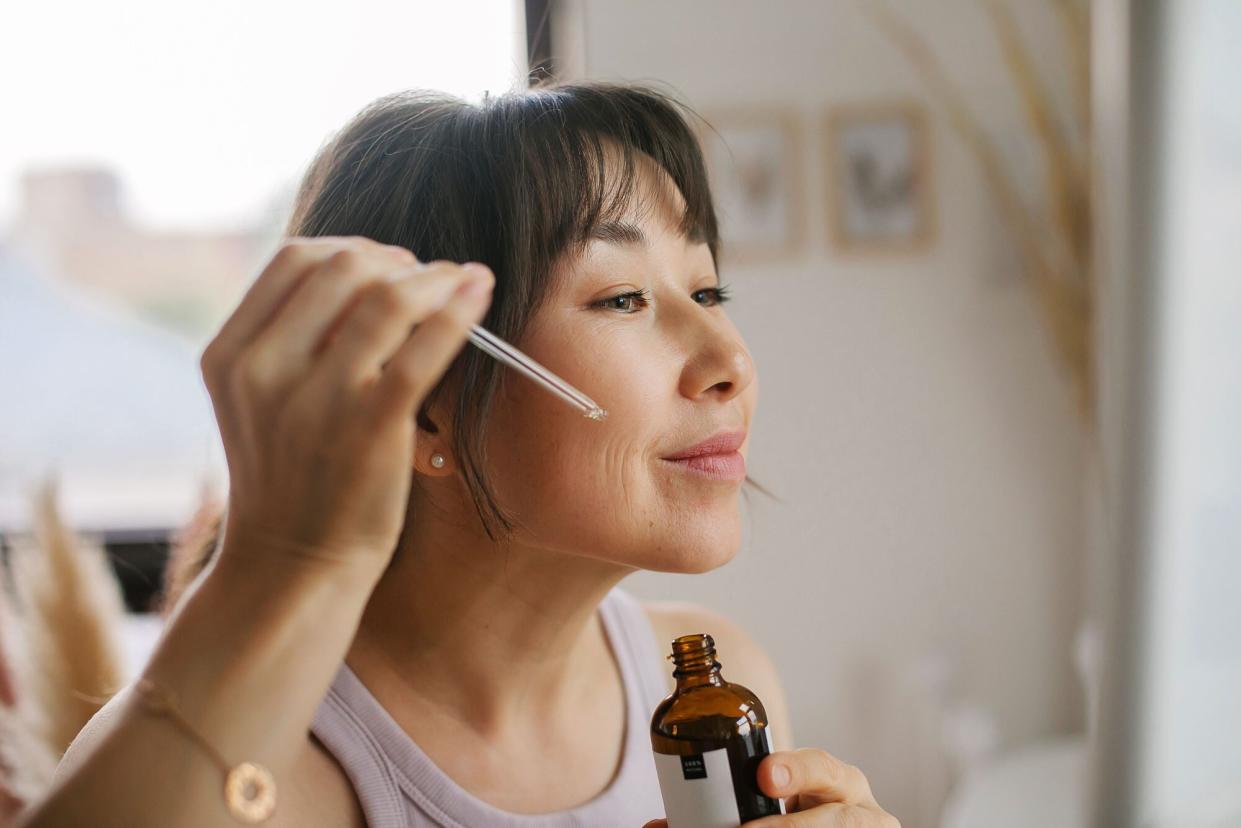Your Hyaluronic Acid Serum Might Be Making Your Skin Drier—Here's Why

Anna Kolesnikova / EyeEm / Getty Images
Hyaluronic acid (HA) is touted as one of the most effective moisturizing ingredients for skin, but it's also widely misunderstood. According to Dr. Hysem Eldik, a board-certified dermatologist at Marmur Medical, the molecule is a naturally occurring polysaccharide in the skin, eyes, and joints that aids in water retention. And while HA, when formulated into serums and lotions, can certainly improve our skin's moisture levels, it doesn't necessarily invite the water to the party—it simply encourages it to stay right where it is. "The easiest way to understand HA's function is to think of it as a sponge in the skin for moisture," notes Dr. Eldik. "The more HA, the more water absorption, and the dewier skin will be with fewer fine lines and wrinkles."
Here's the thing: If your skin doesn't have much moisture to begin with, HA won't be very effective on its own. In fact, it could leave your complexion feeling even drier. "How your skin feels after applying an HA product can be unpredictable," affirms Dr. Eldik, noting that the molecule is formulated into all product types, from cleanser to creams. Serums, however, are often touted as the best vehicle for HA (something that is supported by science, he explains). "In general, serums tend to dry faster on the skin than lotions or creams. Paradoxically, this can leave your skin feeling dry—even though you are using a moisturizing product like HA."
Related: The Best Hyaluronic Acid Products to Add to Your Beauty Routine
To remedy any tightness post HA-application, look to the remaining steps in your skin care routine, says Dr. Eldik, who advises following up your favorite serum with a moisturizer to lock in water before it evaporates up, up, and away from the dermis (sunscreen adds yet another "seal" he shares). Another option? Consider switching products. "HA is an evidence-based anti-aging treatment, so it's worth switching to a different formulation first before moving on," he shares, noting to look for iterations that employ small HA molecules. "If the size of HA is too large—this is measured by chemists as the molecular weight—then it cannot get past the top layer of skin called the stratum corneum," he explains. "It would be like throwing spaghetti on the wall. This may account for why you didn't notice an improvement with a past HA product."
As for which HA-rich products Dr. Eldik prefers? He directs patients towards MMSkincare (from $85, amazon.com), since all of the brand's serums boast hyaluronic acid as the main ingredient—"but you can tailor to your specific needs such as redness, sensitive skin, or acne-prone," he shares. As for a few other favorites? He recommends Dr. Tina Alster's Hydrate HA Elixir ($80, amazon.com) specifically for the neck and chest. He also likes PCA Skin's Hyaluronic Acid Boosting Serum ($120, dermstore.com) because it has hydrolyzed hyaluronic acid, which is uniquely formulated to penetrate through the stratum corneum.

